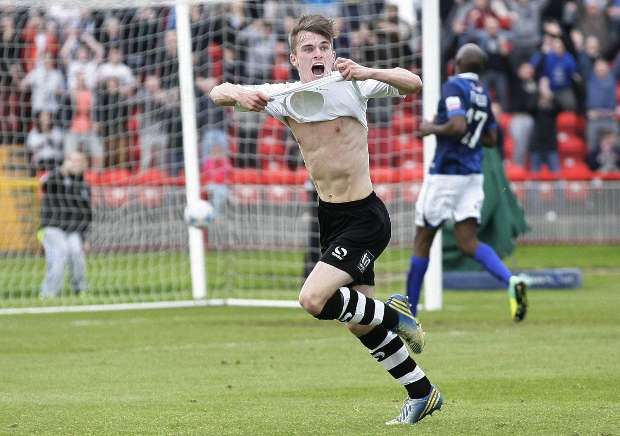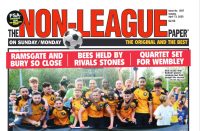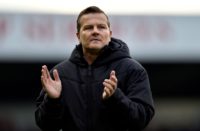GYMS tend to be fairly quiet on Sunday evenings. Most people are enjoying the last throes of the weekend and preparing for another week at the grind. But on those dark nights, with rain hammering down outside, JJ O’Donnell was chasing his dream.
This isn’t a story of a footballer putting in the extra hours to give himself the edge on the pitch. For the 25-year-old it was just about getting on the grass itself and kicking a ball again.
Ask the Gateshead midfielder when his last game was and the response is instant.
“December 19, 2014 – Bristol Rovers away,” he says. It’s been a long road back.
O’Donnell suffers from a rare condition known as sesamoiditis, which affects the small bones under the big toe.
Motivation
Unable to run without pain his only chance of playing again was to go under the knife to remove the bones. Doctors only knew of two previous cases, both in the NFL. One player came back, the other didn’t and the former Luton Town man’s odds were set at 50/50.
A crowdfunding page to fund the operation and his rehab was set up by two young Heed fans, and raised more than £7,000. Blackburn Rovers striker Danny Graham, then at Sunderland, heard about O’Donnell’s battle and chipped in £2,690.
Manchester City managing director and ex-Sheffield Wednesday winger Brian Marwood, dad of former Gateshead attacker James, offered O’Donnell the Premier League giants’ medical expertise.
On Tuesday he took a step towards playing a competitive game again. Heed boss Neil Aspin organised a game against a Newcastle United side and O’Donnell completed 70 minutes. Crucially, he did it pain free.
“There’s been many set-backs on the way and times when I thought it wasn’t going to happen, and my time is done,” O’Donnell says.
“I’ve always kept positive and tried to do the best I can. I was nervous before the game, it was a strange feeling.
“When I was playing before, I was almost waiting for my feet to hurt. Tuesday was almost the same. I was waiting for them to hurt and thankfully they never did. All the hard work I’ve been putting in seems to be getting me closer and closer to playing football again. That’s all I’ve ever wanted to do.”
For the first ten weeks after his operation in June 2015, he was in a wheelchair. He had to practically teach himself to walk again. His toenails had to be removed four times, now for good, after getting infected.
He’d trained with the first team but would get home unable to put pressure on his feet. But, slowly, he’s reached a target he promised himself he’d never give up.
“When you’ve got a family and people supporting you who you want to make proud, that gives you motivation,” he says.
“My nephew Lewis is three and has never seen me play football. That’s been one of the biggest motivations for me. To walk out on a football pitch with him as mascot. It kept me going.”
Support
As has everyone at Gateshead. The club employed him as their kitman so he’s been able to feed off the changing room atmosphere even if, at times, it’s been bittersweet.
“One of the hardest things since doing the kitman job is at five to three when the boys go out and I’m sat there not able to join them,” he says.
“It’s put me in tears. I’ve had to go and sit in the toilet and think about keep going and one day maybe being able to join them.”
O’Donnell now wants to help Aspin’s side chase promotion from the National League. He’s registered as a player and yesterday at Dover Athletic hung up his own shirt on a dressing-room peg.
“For me it was always, ‘Try your best and if it isn’t enough, you can hold your head high’,” he says.
“The messages of support I’ve had have been unbelievable – hundreds, if not thousands, after I played on Tuesday.
“Things like that give me motivation. To be told that I’ve got a 50 per cent chance and then step back out on a football pitch, it’s not just a victory for myself, it’s a victory for people who want to do something.
“If I can overcome this then anything can be overcome.”




















